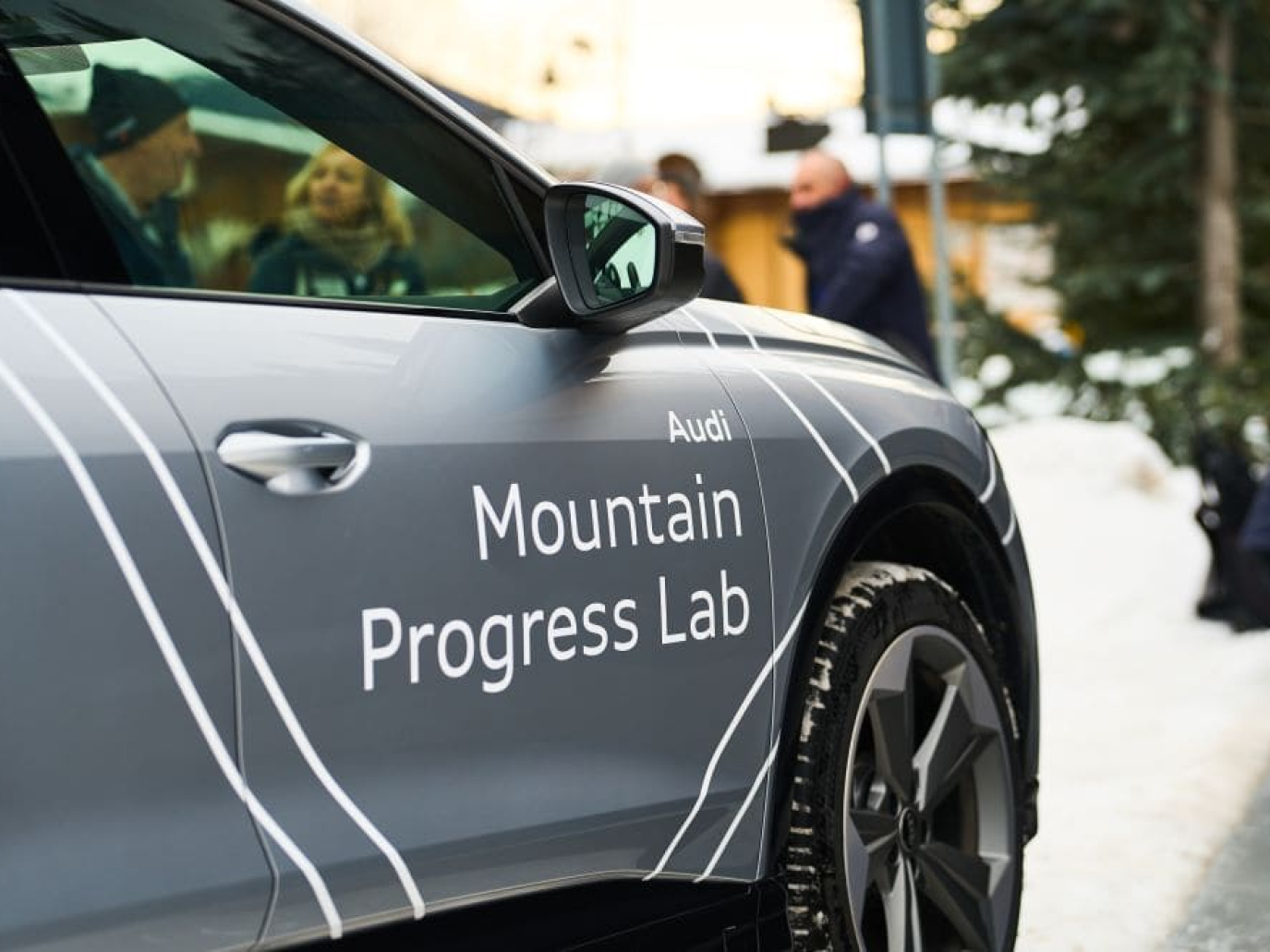This article is also available in Italian / Questo articolo è disponibile anche in italiano
One of the most significant challenges for tourism in Alpine ski resorts is mobility. By definition, mountain resorts have to deal with arrivals and departures that create peak hours and bottlenecks, often with limited road access. This is especially true when aiming for a more sustainable and virtuous mobility.
To develop a low-impact, organised, and clean mobility solution that enhances the livability of the area for both people and the environment, Madonna di Campiglio, in the Trentino region of Italy, has launched the Mountain Progress Lab project. A collaboration between the local tourism board Azienda per il Turismo, the car manufacturer Audi, and a number of institutional and scientific partners has resulted in a system based on electric cars equipped with advanced sensors.
The collection and analysis of data ensures innovative and experimental mapping of the area, enabling concrete decisions on what needs to be made in order to protect one of the most iconic locations in the Dolomites. But also raising awareness about the environmental challenges of our time.
A data-driven approach to mountain mobility
The Mountain Progress Lab (MPL) project was officially unveiled in January 2024 and launched this past summer. Thanks to Audi Q4 e-tron electric vehicles equipped with mobile sensors and a network of 10 sensor stations along four Eco-routes—Vallesinella, Malghette, Patascoss, and the town centre—it gathers data on air quality, traffic patterns, and other key environmental parameters.
Matteo Bonapace, Director of the Azienda per il Turismo, explains, “With this initiative, we aim to make Madonna di Campiglio an increasingly data-driven destination, where choices are guided by reliable data and a sustainable approach.” As mentioned, the collected data will guide strategic decisions on the future of local mobility and develop a more sustainable and widespread tourism, valorising less popular locations and periods of the year.
The project’s results are truly impressive: the “Audi-sentries” have already recorded over 2 million data points, all pointing to good air quality. The sensors on the electric cars, which have covered a total of 10,000 kilometres, also monitor noise, wind, humidity, and temperature. Thus, they have identified areas that are relatively more critical in terms of pollution and traffic, enabling local administrators to take targeted action.
The active engagement of users was particularly stimulating. During their journeys in the electric SUVs, they interacted with artificial intelligence that not only provided information on points of interest but also gathered insights on lifestyle and sustainability. This experience begins at the Audi Smart Hub, a multifunctional space near Lake Campiglio equipped with ultra-fast 100 kW Ewiva charging stations, and designed to serve as a remote work location for residents and tourists.
The Mountain Progress Lab partners
The initiative, supported by Audi, is a collaborative effort between the Azienda per il Turismo, local municipalities—Pinzolo, Tre Ville, Bocenago, Comunità delle Regole Spinale e Manez, and the Adamello Brenta Natural Park—and Trentino Marketing, which are all part of the decision-making. Additionally, the scientific contributions of the University of Trento and H-Farm, a leading European innovation hub located between Treviso and Venice, foster a dynamic environment for start-ups, entrepreneurship, technology, and education.
The MPL project continued throughout the winter, and some new developments stemming from the ongoing monitoring have already been announced. In the summer of 2025, an electric mobility service will be launched between the Colarin parking lot and the centre of Campiglio, improving accessibility and reducing the impact of traffic.
This content is produced thanks to the support of sponsors
Cover: ©APollla_01-22_Campioni in Pista_114 Alessandro Polla



